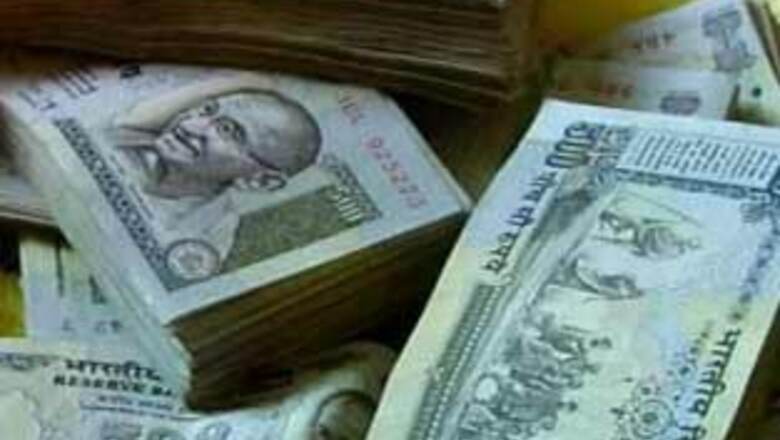
views
Dr Shankar Acharya, Honorary Professor, Indian Council for Research on International Economic Relations (ICRIER) and Member of Board of Governors, has said the government’s forecast of 7.1% GDP growth for FY09 is reassuring, but added that “it looks a little on the higher side compared to the consensus, which was about 6.7%–6.8%.”
“When these numbers get revised, they may get somewhere between 6.5%–7%,” Dr Acharya said. He added that growth during the last two quarter of FY09 would be between 5% and 6%.
On whether there has been any positive impact of the stimuli packages, he said it was too early to talk about them, especially the January package.
When asked what the government could and should come out in the interim Budget on February 16, Dr Acharya said, “Interim Budgets are dull affairs usually, due to impending elections. I don’t see any significant tax policy announcement,” he said. “At best, the government can, in its speech, outline its vision for the economy if it returns to power.”
Dr Acharya also added that saying there could be a turnaround in the second half of CY09 was being a little too optimistic. “Every downgrade of economies by agencies indicates the bottom hasn’t been hit in the US, UK and Japan,” he said.
Here is a verbatim transcript of Dr Shankar Acharya’s exclusive interview on CNBC-TV18. Also watch the accompanying video.
Q: What did you make of that 7.1% estimate? Do you think it’s achievable or too optimistic?
A: I think it’s certainly reassuring though it’s certainly on the higher side compared to what the consensus were forecast — which was around 6.7-6.8% for the full year.
In that sense we were surprised on the upside. My view would be that when these numbers get revised in June and then again next January, you will probably see a number which is closer to what today’s consensus forecast are — somewhere in the middle of 6.5-7% and that’s not unusual in a period when GDP (gross domestic product) growth rate is accelerating, the revisions that occur tend to be revisions upwards whereas in a period, while when GDP growth is decelerating like now, the subsequent revisions normally would tend to be on a downside, That’s because the people who are making the estimates look in a rear-view mirror for their information.
Q: What would your own estimate include in terms of growth for manufacturing services and agriculture?
A: I am not a professional forecaster so I do not think I can give you a breakdown like that but I would have thought that somewhere around 6.6-6.7% is what we will end up with when these revisions have been done for overall GDP growth for FY2008-09.
Q: What’s the current quarterly run-rate you think for economic growth? Forget about what’s happened for FY2009. On current recurring what do you think is the economy growing at if at all on a quarterly basis?
A: I guess we will get a sense of what CSO (Central Statistical Organisation) thinks we are growing at in about three weeks from now towards the end of February when they will give us the first quarterly estimate for the quarter October to December 2008 which we still do not have as you know. The last quarter for which we do have data relates to the July to September and at that time as you know the growth rate was still above 7%.
But then September was the month when in a sense the world fell apart to some extent; all that happened in Wall Street and liquidity crisis and so on. So I think real slowdown has occurred after September and we are yet to see a quarterly estimate from official sources for that period. My own view and this is an intuited view, I do not do as I said professional forecasting would be that in these last two quarters the growth is likely to be somewhere around 5-6% a quarterly run-rate in the final two quarter.
Q: What’s your own sense of how much real, on-the-ground help these two stimulus packages we have got have done?
A: We have had some positive impact from them. It’s certainly too early to talk about the January stimulus package where I think we have the help is not so much from what the government has chosen to call the stimulus packages but rather from the fact that well ahead of that you were seeing large supplementary expenditure grounds from the government announced as you know as early as October which is a huge one, 4% of GDP or thereabouts and it’s that kind of spending, which essentially was in the form of subsidies to keep prices of food, fertiliser and petroleum low. The consequences of that in a normal year might have been rather unpleasant but this hasn’t been a normal year so that I think in retrospect the timing of those subsidies were quite good.
Q: Monday we have an interim budget coming up and some noises you surely would have heard on what is being planned. What in your eyes can the Government do and should the government do in its Interim Budget this time?
A: Normally, interim Budgets are pretty dull affairs and there is a reason for that — particularly when an interim Budget is being presented in February and elections are expected in April-May. There are two sets of reasons; one is that you want to give the economic policy options to the government, which will actually come in and be in office by May-June. They should determine what should be the nature of Budget policy, economic policy in general. So to try and bind their hands from ahead of time by the outgoing government goes against the conventions that have normally being observed in India and that is the main reason.
The second reason being although not yet in operation, which is when the Election Commission officially announced, which it hasn’t yet the dates of the election. After that, any economic policy action, which is seen to in some sense favour the political outcome, is supposed to be ruled out. We are not formally in that phase yet because the Election Commission hasn’t made that announcement but the convention is very clear, particularly in the domain of tax policy that you don’t expect significant tax policy announcements being made in the Interim Budget.
The interim Budget speech can say that we intend to do XYZ if we come back into government but they cannot actually without flouting convention put through tax policy changes, which require changes in the Finance Act.
Q: We are very early into the year but there has been some talks about how some of the stress has been alleviated post the October crisis. Would you go with the view that the second half of this year (calendar year 2009) might actually look like a recovery even in terms of economic performance?
A: I think the views — including my own — change everyday given the various news items that we come across everyday. In general though, I would say that looking for a turnaround in the real sector in India in the second half of 2009 today looks little optimistic.
The global crisis indicators are still pretty uniformly dark for 2009. Every time there are some estimates or forecasts made by international agencies and others, they tend to revise downwards whatever they had made couple of months ago and there doesn’t yet seem to be a clear argument that the bottom has been hit in terms of what’s happening to the US and European and Japanese economies.
In that sense the global environment remains pretty stark and difficult. So against that background, I would be surprised if we see a marked turnaround in the second half of 2009 in the Indian economic performance.
Q: How would you then read the minor improvements that have been registered in January from the low base of October to December? We have seen small uptick in or maybe a decline in the rate of fall in exports, in commercial vehicle sales. Are they just because of they have come out of a very difficult patch in October-December or should they be read as insipient signs of recovery?
A: I wouldn’t try and read too much into month-to-month data. You need to see the data for exports, for industrial productions, for at least three months in a row to average them to get an idea of what the underlying trend is. I would hesitate to draw a lot of comfort from one month’s uptick or slowing of the rate of decline.

















Comments
0 comment